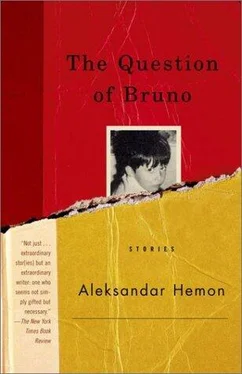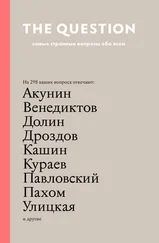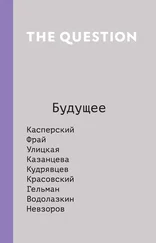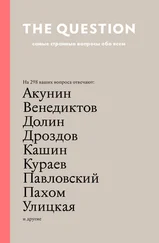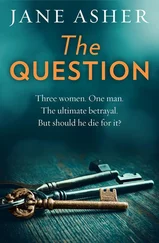1
The horses are trotting stolidly and the coach is bobbing steadily, and Archduke Franz Ferdinand’s eyelids are listlessly sliding down his corneas. The weighty eyelids are about to reach the bottom, but then the horse on the left raises its tail — embarrassingly similar to the tussock on the Archduke’s resplendent helmet — and the Archduke can see the horse’s anus slowly opening, like a camera aperture.
The coach is passing between two tentacles of an ostensibly exultant throng: they wave little flags and cheer in some monkey language (“Would it be called Bosnian?” wonders the Archduke). Children with filthy faces and putrid, cracked teeth run up and down between the legs of the crowd. The Archduke recognizes the secret police, with their impeccable mustaches, with stern, black hats that look clearly grotesque among blood-red fezzes — much like topsy-turvy flower pots with short tassels — and women with little curtains over their faces. The secret police stand stiff, throwing skillful side glances, waiting for the opportunity to show off their alertness. The left horse is dropping turds, like dark, deflated tennis balls. The shallow, obscure river behind the back of the Archduke’s foreign, cunning denizens is reeking of rotten sauerkraut. In the coach ahead, the Archduke can see only the top of General Potiorek’s ceremonial helmet: the elaborate tussock is fluttering annoyingly. He decides to get rid of Potiorek as soon as he assumes the throne.
The Archduke looks at the Archduchess and sees her face in a cramp of disgust. “It would be very unseemly if she started vomiting again in front of all these people,” he thinks. He touches her (cool) hand, carefully trying to convey his manly concern, but she turns to him with the unchanged sickened face and the Archduke quickly recoils.
The coach rolls between two cordons of smirking people waving ridiculous, tiny flags, and vapid, marble-faced secret policemen. The Archduke then sees a man with an accordion stretched over his chest. The man is smiling, sincerely, it appears — he may even be delighted. He doesn’t seem to be playing the accordion, just holding it. The Archduke’s gaze breaks through the crowd and he can now see the man’s strong arms and the accordion belts squeezing the man’s strong forearms. He can see the beige-and-black keyboard and he can see that one of the keys is missing; he can see the dark rectangle in place of the missing key. The coach passes the man and the Archduke thinks he can sense the man’s gaze on his back. He’s tempted to turn around, but that would obviously be unseemly. The Archduke wonders about these strange people, about this man who doesn’t seem to possess any hatred toward him and the Empire (not yet, at least) and he begins to wonder what happened to that key. Can you play a song without that key? How would Liebestod sound with one of the notes never being played? Maybe that man never played that key; maybe he’ll never play that note in his entire life. “Strange people,” thinks the Archduke. He decides to tell the Archduchess about the man with the accordion, perhaps it could cheer her up.
“There’s a man with an accordion,” announces the Archduke into the Archduchess’s ear. The Archduchess winces, as though he’s delirious.
“What? What are you talking about?”
He leans toward her: “There’s a man …”
But then he sees a pistol and a straight, tense arm behind it and a young, scrawny man at the end of the arm, with a thin mustache and fiery eyes. He sees the pistol retching and bursts of light at the pistol’s mouth. He feels something pushing him against the seat and then it punches him in his belly and all the sounds have disappeared.
Besides the quick-swelling, incomprehensible fear that he can do nothing about and tries to ignore, all he can think of is an evening at Mayerling: the Archduchess played Liebestod on the piano, much too slowly, while he sat in the armchair by the fireplace, feeling the heat on the left side of his back. He wasn’t listening to the Archduchess, he was struggling not to doze off, and then he had a rapid thought — which he immediately suppressed — oh my God, how vernacular and ungraceful was the Archduchess’s beauty and how unbearably vapid and stupid Liebestod really was.
He wants to tell her he’s painfully sorry, now, but the Archduchess, her face frozen in repulsion, the Archduchess is already dead.
2
Most of this story is a consequence of irresponsible imagination and shameless speculation. (A case in point: the Archduke died in a car, which took a wrong turn and then virtually parked in front of the assassin, whose pants were soaked with urine.) Parts of it, however, washed against my shores, having floated on a sea of history books, dotted with islands of black-and-white photographs. A considerable part reached me after it passed through tunnels and mazes of the family memories and legends. For the man with the accordion was none other than my great-grandfather, freshly arrived in Bosnia from Ukraine. He was in Sarajevo, for the first and only time in his life, to obtain papers for the promised piece of land — the bait that brought him to Bosnia — from the Austro-Hungarian Empire. He was a peasant and had never been in a big city. The fuss and giddiness that he encountered in the city blessed by the Archduke’s visit (and then cursed by his death) overwhelmed him, so much so that he spent nearly a fifth of his savings to buy the accordion from a Gypsy at the city market. By the time he got back to his new home, on a hill called Vucijak, the First World War was well on its way. He was recruited within a couple of weeks and went to Galicia to fight for the Empire, where he died of dysentery. The accordion outlived him by some fifty cacophonic years, losing a few more keys along the way. It met its demise with a discordant accordion sigh, after my blind uncle Teodor (a hand grenade had exploded in his hands when he was six) threw himself on the bed where the accordion helplessly lay. Uncle Teodor is now stuck in the Serb part of Bosnia. Most of my family is scattered across Canada. This story was written in Chicago (where I live) on the subway, after a long day of arduous work as a parking assistant, A.D. 1996.
EXCHANGE OF PLEASANT WORDS
1
What year was it? We have chosen to believe it was 1811. Therefore: In the fall of 1811, Alexandre Hemon got up from his slothful bed in Quimper, Brittany; sold, unbeknownst to his widowed mother, their only horse — a perennially exhausted nag — for thirty silver coins; and joined, after some adventurous drifting, Napoleon’s army on its way to Russia, heading for yet another glorious victory. He was, we believe, twenty-one at the time. We imagine him marching through Prussia, still stunned by the greatness of the world; crossing the Nieman river in June 1812, the river washing down a gossamer coat of dust and cooling off his sore, blistering feet. Then we can see him charging at the ferocious Russians at Smolensk. At Borodino, he leads the infantry attack armed with a sabre; he single-handedly captures a battery of begging-for-mercy Russians. (“No, Lev, that was not a victory!” my father might exclaim when narrating this particular stretch of the family history.) We watch with him the flames of Moscow scalding the sky’s belly. But there’s no joy any longer in his extinguished heart: the victories don’t seem to be so wholesome anymore, and his sore feet have changed state — now they’re frozen solid. Then comes the humiliating, murderous retreat. The officers are nowhere in sight, the soldier next to you just soundlessly drops in the snow like an icicle, then never gets up, and the Russians keep mauling the mutilated body of the great army. He stumbles and falls through the snow-laden steppe and when he raises his head he’s in the midst of a thick forest.
Читать дальше
